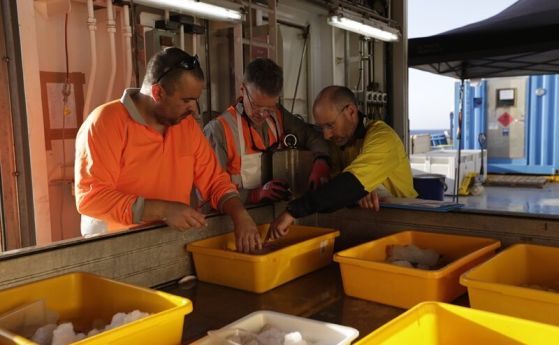
Discover how biotechnology is transforming sustainable food production via credible practices that enhance crop yields. Explore prospects for a greener future!
How Biotechnology Is Revolutionizing Sustainable Food Production
The fast-growing field of biotechnology (the combination of biology and technology) is leading efforts to transform sustainable food production to help supply a world with 9.7 billion people (by 2050) — a time when demands for food will grow at a previously unseen rate. Whether you can’t live without morning filter coffee, top NV Casino games, or favourite TV shows — everyone needs food.
Conventional practices, it appears, will not be able to provide this growing demand sustainably. In this article, we will discuss the changes that biotechnology brings about in food production systems, the strength or resilience of crops, nutritional values, and future sustainability.
Understanding Biotechnology in Agriculture Generally
Biotechnology is a broad term for various techniques that make use of or modify the characteristics of, including genetic engineering of crop tissue culture, marker-assisted selection, biological control agents, and bioinformatics. These tools help make improvements in the desirable traits of crops, such as nutritional value, disease and pest resistance, and tolerance to environmental stresses.
Genetically modified organisms (GMOs), arguably the most visible biotech application in agriculture, use alterations within the plant DNA to add features to the plant that allow it to survive in otherwise inhospitable circumstances. Take the widely used Bt corn and cotton, for instance: these varieties are engineered to express the Bacillus thuringiensis protein, giving them resistance to specific pests. Indeed, this means that fewer chemical pesticides are needed.
Sophisticated molecular breeding techniques, including CRISPR-Cas9, which have an exacting level of control over editing the plants’ genomes, can boost desirable traits without the introduction of foreign DNA, often leading to shorter development timelines and fewer regulatory hurdles than common GMOs. This, in turn, could accelerate the development of new, more resilient crop types that thrive under climate change conditions by streamlining the breeding process.
Increasing Crop Yield and Resilience
Even as climate change continues to threaten traditional farming practices around the world, this technological concept remains an indispensable tool for cultivating crops that can adapt to shifting environments. Through genetic modification and selective breeding, natural, salinity, and drought cultivars are bred.
One major problem faced by farmers worldwide is drought, especially in areas where water supplies are lacking. Luckily, this concept has enabled the development of drought-tolerant crop varieties. Now, we can grow some varieties of wheat and maise in dry areas that, in the past, lacked sufficient water, even in low water conditions, to continue producing food.
This tech concept has contributed to the creation of disease- and pest-resistant crops. Ring-spot virus, for example, wiped out the papaya crop in Hawaii. And by making papaya resistant, it can now withstand that virus. Sustainable farming can translate into higher yields and more fertile ecosystems. Finally, genetic engineering can do more than just build resistance. It can also create entirely new crops with qualities that do not naturally occur.
Improving Nutritional Value
As the world works to relieve hunger and improve food security, the technological concept plays a critical role in enhancing the nutritional density of crops, not just yield and resistance. It achieves this in two major ways:
-
Biofortification;
-
Functional Foods.
Biofortification
Using biotechnology, staple crops can be enhanced to be more nutritious through a process known as biofortification, as with golden rice, which has been genetically modified to have elevated levels of Vitamin A. This program aims to correct Vitamin A deficiency, which is associated with immune system issues and blindness in underdeveloped parts of the world.
Functional Foods
Another product of biotechnology is so-called functional foods. For instance, plants that grow with higher counts of probiotics or Omega-3 fatty acids have been developed. In this way, biotechnology also supports and furthers the drive toward healthy foods with high nutrient content and increased diversity of food sources.
Minimising the Effect on the Environment
Aside from maximising productivity, sustainable food production means minimising the footprint on the environment. Biotechnology does this by reducing the need for chemical pesticides and fertilisers, lowering greenhouse gas emissions, and encouraging the use of land in a sustainable manner.
Some biotech crops have also been engineered to require fewer chemical inputs. Crops that are high in nitrogen efficiency, for example, use soil nitrogen more efficiently. This reduces the need for artificial fertiliser. The fewer chemicals in production, the lower the environmental risks from chemical runoff into waterways and the lower the cost of production for farmers.
The concept could help raise yields on currently farmed fields, reducing the pressure to clear forests and other natural areas for farming. It could thus help protect the ecosystems that provide us with these vital goods, such as clean water, clean air, and biodiversity.
Harvesting Change: Biotechnology’s Role in Sustainable Agriculture
Since biotechnology boosts the resilience of crops, enhances their nutritional value, and minimises the environmental footprint, it should be able to revolutionise sustainable food production. It allows for innovative solutions for food security and sustainability as our planet tries to feed an increasing population while also preserving the planet’s resources.
Biotechnology will surely play a role in helping to create sustainable agriculture that feeds people and protects the environment if its application is informed by ongoing research, made appropriate to nationally defined contexts, and subject to broad public discussions.




















Коментари
Моля, регистрирайте се от TУК!
Ако вече имате регистрация, натиснете ТУК!
Няма коментари към тази новина !
Последни коментари
Прост Човек
Ново обяснение за гигантските експлодиращи кратери в Сибир
dolivo
Климатичният скептицизъм – най-скъпата лъжа на нашето време
helper68
Използването на смартфон в тоалетната е свързано с 46% по-висок риск от хемороиди
YKoshev
Доколко съвместими са минерално-суровинният отрасъл и чистата околна среда?